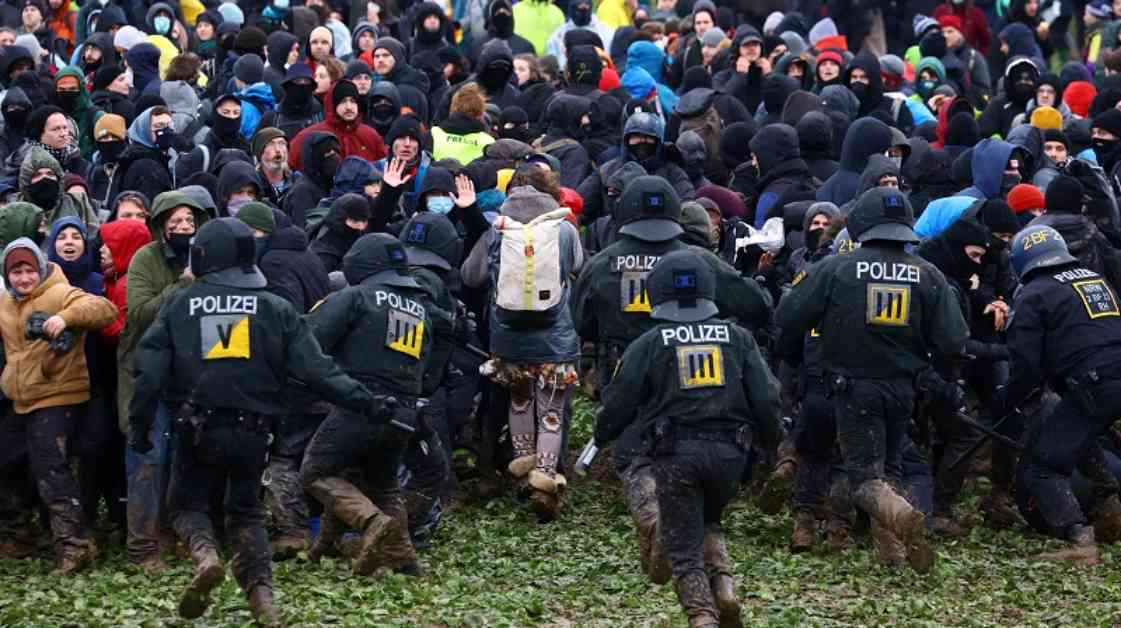Intensifying Repression of Climate and Environmental Protests: A Global Concern
In recent years, the world has witnessed a surge in climate and environmental protests, sparking a wave of crackdowns and repression by authorities. This alarming trend of criminalizing activism has raised serious concerns about the ability to stand up for climate justice globally. The University of Bristol’s senior lecturer, Oscar Berglund, and PhD candidate, Tie Franco Brotto, shed light on this pressing issue in a recent report that unveils the growing repression of climate and environmental protests around the world.
Global Trend of Repression
The criminalization and repression of climate and environmental protests transcend borders, affecting both democratic and less democratic nations. While these forms of activism vary in their objectives, they share a common goal of advocating for a sustainable environment. Climate protests focus on reducing carbon emissions and demanding policy changes, often taking place in urban areas in the global north. On the other hand, environmental protests target specific projects that harm the environment, such as oil extraction, deforestation, and mining, occurring worldwide.
Four Disturbing Forms of Repression
The intensifying repression of activism manifests in four main ways:
1. Introduction of Anti-Protest Laws: Authorities implement laws that grant more power to the police to curtail protests, introduce new criminal offenses, and increase penalties for activists. Since 2019, 22 pieces of anti-protest legislation have been introduced in 14 countries.
2. Criminalization Through Prosecution: Activists face prosecution under laws designed for terrorism or organized crime, limiting their ability to defend their cause. In some instances, activists are prohibited from mentioning climate change in court, making convictions more likely.
3. Harsher Policing: From surveillance to violence, activists are subjected to various forms of policing, including threats, arrests, and infiltration by state and private actors. Private security forces have been used to suppress anti-mining activists in countries like Peru.
4. Killings and Disappearances: In extreme cases, environmental activists are targeted and murdered, often following threats from state and non-state actors. This alarming trend is on the rise in countries like Brazil, the Philippines, Peru, and India.
Protests on the Rise
Despite the growing repression, climate and environmental protests continue to escalate globally. Data from the Armed Conflicts Location Event database reveals a significant increase in climate protests in 2018-2019, with no signs of decline since then. The protests make up approximately 4% of all documented protests in 81 countries, indicating a widespread demand for climate justice.
A Closer Look at Repression
Analyzing data from protest events, researchers found that an average of 3% of climate and environmental protests worldwide face police violence, while 6.3% result in arrests. However, the nature of repression varies significantly across countries. Countries like Australia and the UK have high arrest rates due to active protest groups like Extinction Rebellion, while countries like Peru and Uganda experience high levels of police violence during protests.
In Conclusion
While the criminalization and repression of climate and environmental protests may take different forms globally, the underlying similarities are striking. This growing trend occurs in a context where governments are failing to take adequate action on climate change, highlighting the need for urgent and meaningful responses to address environmental challenges. By criminalizing activists, states undermine their crucial role in advocating for a sustainable future, ultimately silencing voices that call for positive change.
As we confront these pressing issues, it is essential to recognize the bravery and dedication of activists worldwide who continue to fight for a cleaner, greener planet. Their unwavering commitment to environmental causes serves as a reminder of the urgent need for collective action to protect our planet for future generations. Let us stand in solidarity with these courageous activists and amplify their voices to bring about positive change in our communities and beyond.














